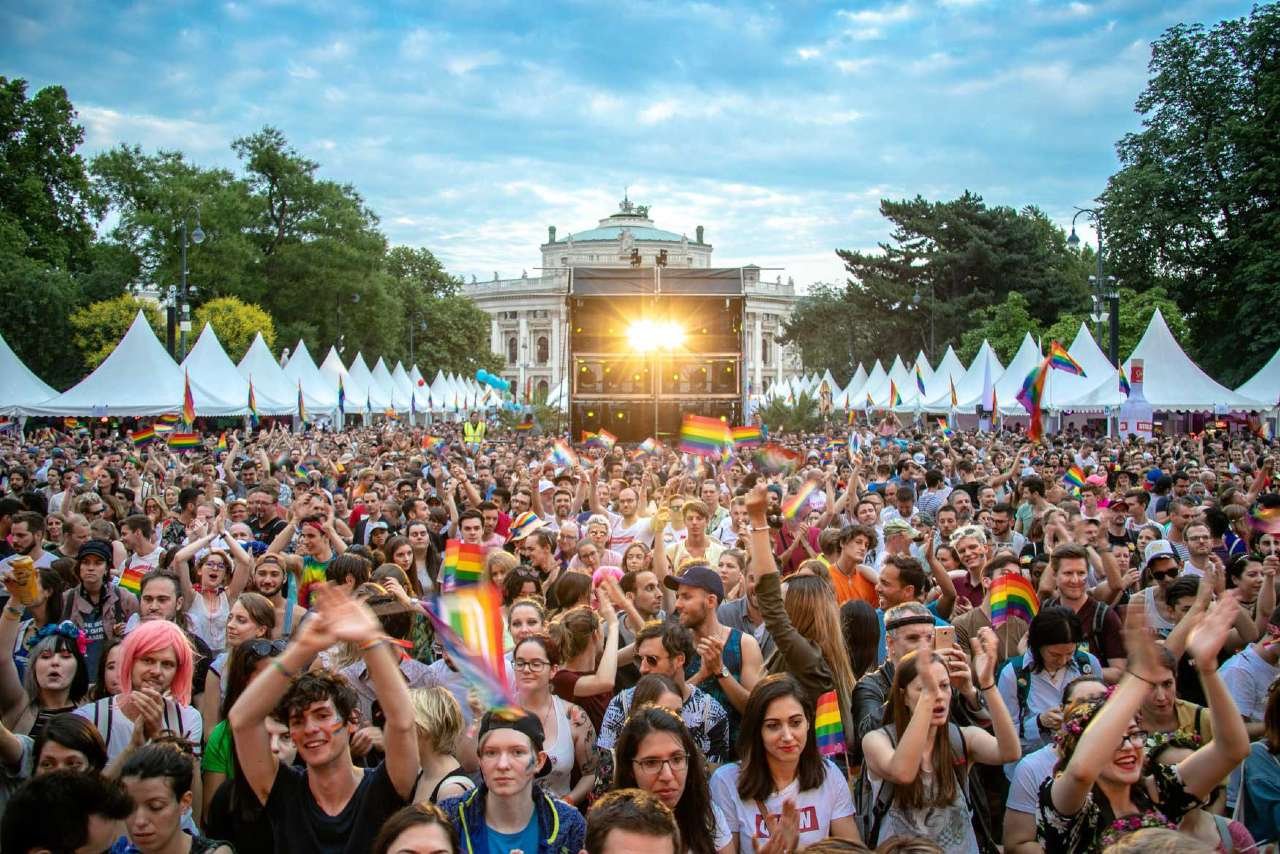
This week, Vienna will share Pride far beyond its borders
As Prides face increasing hostility and challenges, and LGBTI equality in central Europe still has a long way to go, this week’s EuroPride in Vienna will give hope beyond Austria’s borders, writes Kristine Garina, President of the European Pride Organisers Association.
This weekend, hundreds of thousands of people from across Europe will march along Vienna’s Ringstrasse as EuroPride 2019 becomes the biggest LGBTI event Austria has ever seen. But the impact of this year’s EuroPride will be felt way beyond the Austrian borders, as it becomes a symbol of hope for the millions of LGBTI people living in the region.
I know only too well the transformative effect of Pride, and especially EuroPride. Back in 2012, as the leaders of Latvia’s only LGBTI organisation, we made an ambitious bid to bring EuroPride to a former Soviet country for the first time. And we won, beating cities with long-established Prides including Barcleona and Manchester.
Three years later, in June 2015, we delivered EuroPride in Riga. In the decade since the first Pride – when we were attacked with missiles and where those opposing Pride on mainly religious grounds outnumbered us several times over – we had overcome political, social and religious barriers to host Europe’s most important LGBTI event, and many thousands of people travelled from across Europe to show their support. The impact continues to be felt; last year the numbers attending Baltic Pride in Riga were double those who’d attended EuroPride three years earlier.
Of course, Austria is far ahead of Latvia when it comes to LGBTI equality. Rainbow Europe, which ranks all European countries based on various measures of LGBTI equality, places Austria thirteenth, whilst Latvia languishes in fortieth place – the poorest performance of any EU nation. But Austria’s geographic location at the heart of central Europe and with several countries with poor LGBTI records within a short drive from Vienna, means that EuroPride this year has a special importance.

We need only to go back to Rainbow Europe to see how difficult the situation is in neighbouring countries. Thirteenth place Austria nestles amongst those with far worse records for LGBTI equality, with Hungary, Slovakia, Slovenia, and the Czech Republic among them. Austria’s proximity to these countries was one of the reasons our members voted for Vienna to host this year’s event. Organisers of EuroPride in Vienna anticipate many visitors from these countries later this week, and activists from many eastern European countries will participate in human rights seminars throughout the week.
This can’t come at a more important time. Just weeks ago the President of the city of Gniezno, Poland, attempted to ban the Pride, an attempt overturned at court. The court’s decision was a surprise to no-one, especially as a case against Poland at the European Court of Human Rights had ruled in 2007 that bans on Prides were contrary to the Convention, but the Gniezno Equality March was just the latest in a long line of Prides facing increasing attacks from the far right and nationalist groups.
Georgian government authorities said last week that they can’t guarantee the safety of this month’s Tbilisi Pride, and rather than protecting their citizens’ right to march, they urged organisers to cancel. Prides in Istanbul and Ankara continue to face bans and challenges, despite international pressure. New Prides in Skopje and Sarajevo are facing opposition from religious and nationalist groups. Baltic Pride in Vilnius – which I attended at the weekend just gone – faced legal challenges from opponents who attempted to stop the event. Indeed, in both Latvia and Lithuania, we have so learned to expect legal challenges that we actually prepare our legal responses well in advance, so we are ready to file them the moment our opponents launch their spurious objections.
It’s clear that the western European view that Pride in 2019 is just a party couldn’t be more wrong. Pride is an essential and important opportunity for LGBTI people to say ‘we are here, and we demand fundamental rights and freedoms’, and its fifty year history shows the impact it can have as a vehicle for change. EuroPride in Vienna, sitting at the heart of Europe, will give hope and opportunity far beyond Austria’s borders. The high level support for the event will reinforce that.
The political and strategic importance of EuroPride in Vienna is not lost on national leaders and representatives. President Alexander Van der Bellen will become the first head of state ever to attend or speak at a EuroPride. Many of the diplomatic missions in Vienna will hold receptions, and Diplomats for Equality will be in their largest ever number in the Rainbow Parade on Saturday. Many parliamentarians including MEPs will also join the Parade.
Once the Parade is over, on Saturday evening the organising team in Vienna will hand over the EuroPride Quilt to the hosts for 2020, Thessaloniki in Greece. As EuroPride heads to south-eastern Europe and the Western Balkans for the first time, it’s my real hope that the message from Vienna this week is that we are united, together, for LGBTI equality for everyone, wherever they are. We all deserve to have Pride.
